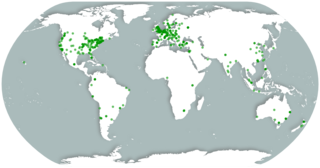
Career
Counterfactuals and COVID-19
What should psychologists be doing now? If nothing else, asking that question.
Posted March 29, 2020
These are very scary and uncertain times. The reality of COVID-19 and its rapid spread seems to change from week to week. People’s lives have been upended by the measures to contain the spread and their fallout. Worse still, people’s lives have been seriously threatened or taken by the disease. It seems fair to say that it’s a pretty dark time.
I think a natural reaction in such a situation is to wonder: What should I be doing now? There seem to be some obvious answers. Wash your hands a lot. Avoid large gatherings. Stay home if you can. Cough into your sleeve. But once you get past those, there’s probably a bit less certainty.
I’ve watched a lot of psychologists grapple with this uncertainty over the last few weeks. Many are wondering what they can do, as psychologists, to help combat the pandemic. I certainly worked through this mental exercise. I’d like to explain where I landed in that exercise, and, maybe, more importantly, why where I landed might be the wrong answer.
Studying ways to fight the COVID-19 pandemic
A number of research psychologists have jumped into action studying facets of the current pandemic. Twitter and professional listservs have been full of journals promising quick reviews for COVID-19-related submissions and researchers looking for participants for their studies.

I have contributed to this flood as well, helping to organize a rapid call for study proposals within the Psychological Science Accelerator (which I’ll refer to as the PSA). That call for studies garnered 66 proposals (way more than I expected!), from which the leadership team of the PSA (of which I am a part) and the broader network of researchers selected three to pursue. For the past two weeks, members of the PSA and the proposers of the three accepted proposals have been working around the clock to prepare these studies to be rolled out at universities around the world.
Why I’m working on this initiative
COVID-19 seems to be, first and foremost, a health problem. However, it’s also very much a social problem. Getting people to physically distance from one another is hard. Teaching people how to understand the stakes and uncertainties of the crisis is hard. This is on top of the general anxiety of living through a pandemic (not to mention how hard it is to be isolated from friends and loved ones).
In theory, psychology should have some part to play in these challenges. We study topics related to these problems (e.g., how to reduce anxiety, how to get people to comply with directions). As such, it doesn’t seem crazy to think that we might be able to contribute to the struggle against the pandemic through our research and insight. That perspective is what convinced me to support the PSA’s call for studies (I was skeptical at first) and to craft the call as specifically focusing on applications of psychology research. I thought that psychology researchers could help in this crisis, and I wanted the organization which I help lead to be a part of that effort.
Why I might be wrong
There have been a lot of thoughtful critiques to initiatives like the one the PSA is supporting (for a particularly thoughtful critique, I’d read this blog post). One prominent critique is that when you’re working really fast, you might cut corners and/or make mistakes. This is likely true. Given the urgency of the situation, studies on COVID-19 are being rolled out at an incredibly fast pace. Researchers are rapidly diverting their focus and resources to studying COVID-related topics. This speed may sacrifice too much quality in the eventual research.
Another reasonable critique is to question the motives of the researchers quickly shifting their research programs to study COVID-19. As an example, let’s look at my motives. Maybe the real reason I supported the PSA’s call for studies is that I feel guilty for not doing more to fight the pandemic. Maybe I’m just very anxious about the pandemic, and this is a way I can feel like I have some control in the situation (although if my idea of coping with anxiety is navigating ethics approval processes at over 100 universities at once, I may need better coping strategies). I’m by no means a selfless person, so maybe my motives for pursuing this work aren’t so selfless either.
Counterfactuals to our actions during this time
Counterfactuals are possible worlds that we might have inhabited if we had made different choices. People are pretty good at generating counterfactuals. They can be fun thought experiments or generate useful lessons for future decisions.
When the research I’m taking part in is completed, there will be counterfactuals to the reality we’ve created. Maybe we’ll be glad that we carried out the work that we did. Maybe we’ll generate some practical psychological insights that can play some part in combating the pandemic. In that case, the counterfactual will be worse than the world we inhabit—we’ll be glad that we did the work that we did.
However, the opposite is also very possible. Maybe our work doesn’t produce anything useful. Even worse than that, maybe our work produces insights that we think are useful, but that backfire in practice. In that case, the counterfactual would be better than the world we created—we might have all been better off doing something else with our time.
I’m not sure which world I’ll end up in and which counterfactuals I’ll be left with. I think I’m doing something useful in this time of crisis, but I may later decide that I was wrong about that. I suspect there are many other psychologists out there that are similarly wrestling with these questions.
The thing I’d encourage you to not wrestle with, though, is whether or not to ask these questions at all. Maybe the best thing you can do right now is to lend your insight to combating COVID-19. Maybe the best thing you can do right now is to set research aside and find other ways to help. I certainly don’t know which of these options will be true for me. However, I am confident that one of the counterfactuals I’d regret most is the one in which I don’t ask myself these questions at all.



